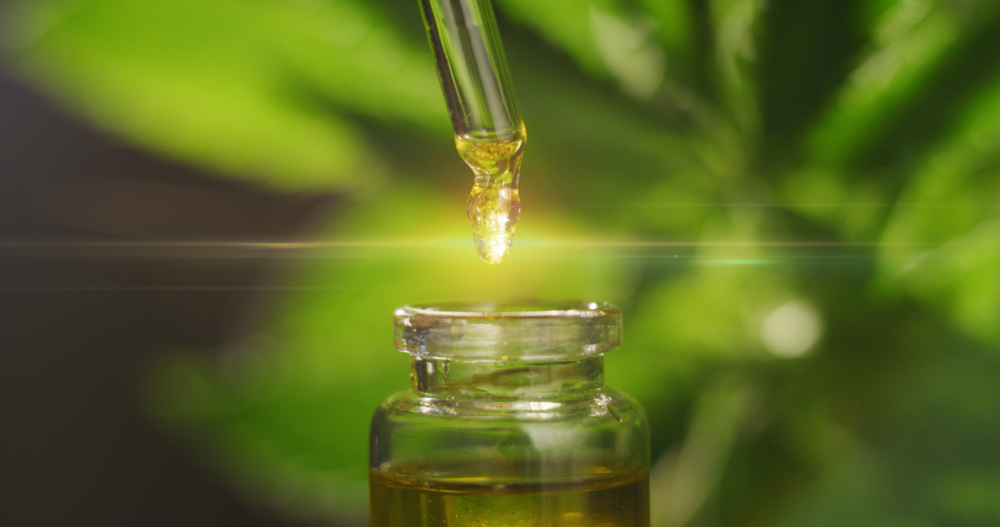Provided By: Nancy R. Fernandez
CBD has taken over the field of mental health aggressively in recent years. Almost every nook and corner of healthcare society is looking into CBD’s potential – what it can do to cure, treat or prevent certain conditions and how it can benefit the mental, physical, and psychological health.
What is CBD?
CBD stands for Cannabidiol, one of the 100+ chemical compounds known as cannabinoids present in the cannabis plant family. They are infamously known as marijuana and hemp (Both belong to different species). Many are familiar with its famous cousin cannabinoid THC or Tetrahydrocannabinol, a psychoactive compound that provides a “high.” Unlike THC, CBD is a non-psychoactive chemical compound, and hence it is safe for consumption.
CBD is famous for its therapeutic effects on pain management. Yet recent studies show its potential in treating mental disorders including but not limited to anxiety, depression, mood disorders, etc.
CBD for Depression
WHO states that depression is a leading cause of disability and is also a significant contributor to the overall global burden. All age groups can or may suffer from depression affecting their daily and social life. The most common symptoms of depression are lack of energy, mood instability, disturbed sleep and appetite, loss of interest. In many severe cases, the symptoms might be bipolar affective disorders and manic episodes.
Scientists believe that CBD has the potential to treat depression and its symptoms. People suffering from depression have shown signs of low serotonin levels in their system. CBD affects serotonin receptors in the brain. It doesn’t necessarily mean that CBD boosts serotonin production, but may affect the brain’s chemical receptors to interact with serotonin already present in your body. Let’s break it down to six ways CBD can cure depression.
- CBD can Support Neural Regeneration
It has been seen that people suffering from depression have shrunken or atrophic hippocampus. This region of the brain is responsible for activities like learning, memory, and emotion. Luckily, our brains are capable of healing or recovering such damages by regenerating neurons, and this process is known as “neurogenesis” or “neural regeneration.”
Lazarus Naturals CBD helps to protect neurons in the hippocampus region of the brain. From time to time, CBD has shown a great ability to have neuroprotective properties. One study has shown that regular use of CBD has affected the recovery of the hippocampus region, playing a role in neurogenesis. Another study on epileptic rats has shown CBD can restore morphological impairments of hippocampal areas.
- CBD in Regulation of Endocannabinoid System
The endocannabinoid system (ECS) is a very complex cell-signaling system in your body. We still don’t understand much about ECS, but so far, we know that it plays a role in the regulation of a range of functions and processes including but not limited to mood, stress, appetite, sleep, memory, etc. Endocannabinoids are molecules produced in our bodies and are similar to cannabinoids (CBD or THC).
Scientists have identified two principal endocannabinoids – Anandamide (AEA), which is also known as “joy hormone,” and the other is 2-arachidonoylglyerol (2-AG).
This activity helps our body feel a rush of happiness and promotes a feeling of bliss and heightened motivation. It is quite sure that CBD can lower or even cure depression symptoms by stimulating the ECS.
- CBD Can Help To Modulate Serotonin Receptors
CBD helps to activate the serotonin receptor (5-HT1A), which plays a role in the implication of pain, depression, and anxiety. Several studies have pointed out that depression or anxiety is somehow related to persistent inflammatory pain in our system. Clinical studies now indicate that CBD can interact with the 5-HT1A and produces analgesic and anxiolytic effects.
A review involving animal models suggested that CBD has a potent antidepressant property. Further, some studies also suggest that CBD can improve the symptoms of behavioral disorders associated with depression.
- CBD Can Help To Lower Stress
Heavy physical and mental stress can cause depression. It is crucial to lowering stress to help relieve depression. One investigation found that CBD has a “clear anti-stress effect” on repeated administration of CBD dose in a controlled environment.
The same study also shows that CBD reduces clinical disorders such as post-traumatic stress (PTSD) and obsessive-compulsive disorder (OCD). Regular consumption of CBD, along with exercises, can help to get rid of stress.
- CBD Can Help To Lower Anxiety
Anxiety can be a significant cause of depression. The constant feeling of excitement, restlessness, and panic, etc. often leads to depression when left untreated. Many people might be suffering from anxiety and depression at the same time.
CBD is very effective at relieving anxiety. There are plenty of animal and human models suggesting that CBD can be the next cure for anxiety. Large clinical trials are needed to support that fact.
- CBD Helps To Sleep and Stabilize Mood
Disturbances in sleep patterns can cause adverse effects on physical and mental health. There is a very complicated relationship between sleep and depression. Lack of sleep can cause depression, and also depression can cause loss of sleep. Sleep is vital to maintain the right balance of mental health. CBD helps to lower feelings of restlessness, uneasiness, and over-activeness, promoting healthy sleep. Companies like CBDFx makes CBD sleep gummies which you can take 2 hours before bed to promote a deep sleep.
Given that CBD has anti-anxiety, antidepressant, and sleep-promoting actions, it is safe to assume that CBD could stabilize mood disorders.
The bottom line
It is also imperative to understand that CBD will help you to minimize the effects of depression. You need to have a healthy outlook towards yourself and talk to a professional about your mental health. Along with CBD, eat healthily, drink water, and exercise daily to get rid of your depressive mood.







Recent Comments